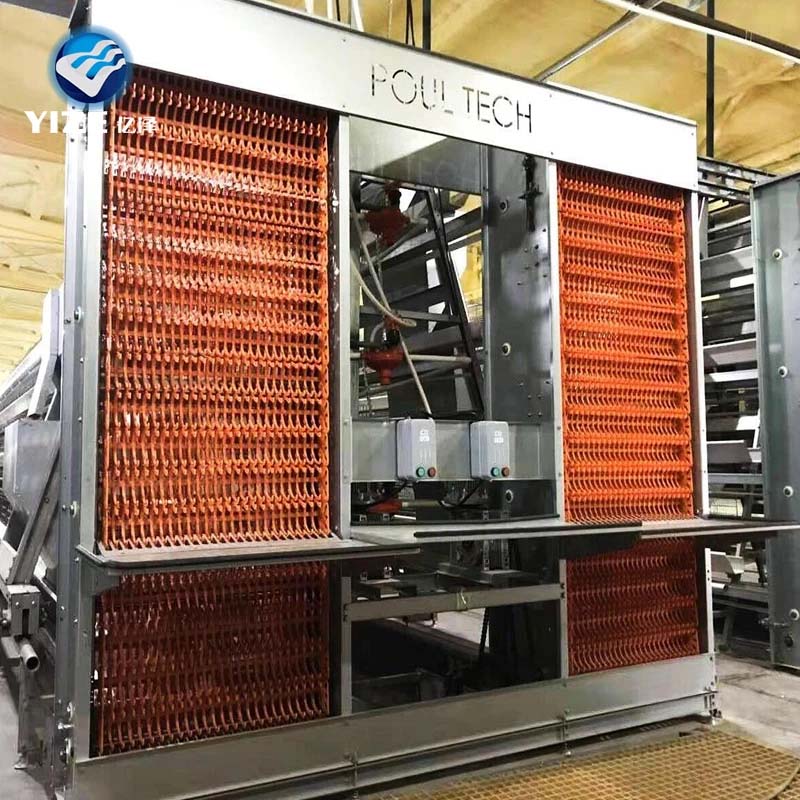Durable Plastic Housing Solutions for Raising Healthy Chickens and Enhancing Their Living Conditions
Dec . 03, 2024 17:21 Back to list
Durable Plastic Housing Solutions for Raising Healthy Chickens and Enhancing Their Living Conditions
The Benefits of Using Plastic Cages for Chicken Farming
In recent years, the poultry industry has seen a significant shift towards adopting more sustainable and efficient farming practices. One of the key innovations making waves is the use of plastic cages for chicken farming. Unlike traditional wooden or metal cages, plastic cages offer numerous advantages that can enhance the welfare of the chickens and improve the overall productivity of poultry operations.
Durability and Longevity
Plastic cages are designed to withstand the rigors of poultry farming. Unlike wooden cages that can rot or become infested with pests, or metal cages that may rust over time, plastic cages are highly durable. They are resistant to moisture, ensuring a longer lifespan with minimal maintenance. This longevity translates to cost savings for farmers, as they do not need to replace cages as frequently. Furthermore, the lightweight nature of plastic makes these cages easier to handle and move, facilitating management and cleaning procedures.
Hygiene and Biosecurity
One of the most pressing concerns in poultry farming is disease control. Inadequate cleaning and maintenance can lead to the spread of pathogens and diseases among flocks. Plastic cages offer a smoother and more hygienic surface compared to traditional materials. They can be easily cleaned and sanitized, significantly reducing the risk of contamination. This ease of maintenance is crucial for maintaining a healthy environment for chickens, which in turn leads to better growth rates and egg production.
Moreover, the compatibility of plastic with various cleaning solutions ensures effective sanitation without degrading the material, further enhancing biosecurity measures. By investing in plastic cages, farmers can implement a more rigorous biosecurity plan, protecting their flocks from potential diseases.
Welfare of Chickens
Animal welfare is a growing concern among consumers and regulatory bodies alike. Plastic cages can be designed to incorporate features that improve the living conditions of chickens. For example, many plastic cages provide better ventilation and allow for natural light exposure, which can enhance the chickens' overall well-being. Improved lighting conditions can help stimulate natural behaviors and reduce stress levels among the birds.
plastic cage for chicken

Additionally, plastic cages can be designed with more space and comfortable features, allowing chickens to move freely and engage in natural behaviors such as nesting and foraging. By prioritizing the welfare of the chickens, farmers not only adhere to ethical standards but also meet consumer demands for sustainably and humanely raised poultry products.
Environmental Impact
With an increasing focus on environmentally friendly practices, plastic cages present an opportunity for poultry farmers to reduce their ecological footprint. Many plastic cages are made from recycled materials, aligning with sustainable practices. Moreover, their long life span reduces the need for frequent replacements, which in turn lessens waste production.
Furthermore, the lighter weight of plastic means reduced transportation costs and emissions when moving cages and other equipment. By choosing plastic cages, farmers can contribute to a more sustainable poultry industry while also appealing to environmentally-conscious consumers.
Economic Efficiency
While the initial investment in plastic cages might seem higher than traditional options, the long-term economic benefits are substantial. The durability, ease of cleaning, and potential for enhanced animal welfare ultimately lead to increased productivity—higher egg yield, healthier birds, and reduced mortality rates. These factors contribute to a more profitable operation over time.
Additionally, the ability to maintain higher standards of biosecurity can prevent costly outbreaks of disease that could devastate a flock and result in significant financial losses. The economic rationale for switching to plastic cages is thus compelling for forward-thinking poultry farmers.
Conclusion
In conclusion, plastic cages represent a significant innovation in chicken farming that offers numerous benefits, including durability, enhanced biosecurity, improved animal welfare, and environmental sustainability. As the poultry industry continues to evolve, embracing these modern solutions can lead to a more efficient, ethical, and profitable farming practice. By opting for plastic cages, poultry farmers not only enhance the welfare of their chickens but also align their operations with the growing demand for sustainable agricultural practices.
-
Automatic Feeding Line System-Pan Feeder Nipple Drinker|Anping County Yize Metal Products Co., Ltd.
NewsJul.29,2025
-
Hot Sale 24 & 18 Door Rabbit Cages - Premium Breeding Solutions
NewsJul.25,2025
-
Automatic Feeding Line System Pan Feeder Nipple Drinker - Anping County Yize Metal Products Co., Ltd.
NewsJul.21,2025
-
Automatic Feeding Line System Pan Feeder Nipple Drinker - Anping County Yize Metal Products Co., Ltd.
NewsJul.21,2025
-
Automatic Feeding Line System - Anping Yize | Precision & Nipple
NewsJul.21,2025
-
Automatic Feeding Line System - Anping Yize | Precision & Nipple
NewsJul.21,2025






